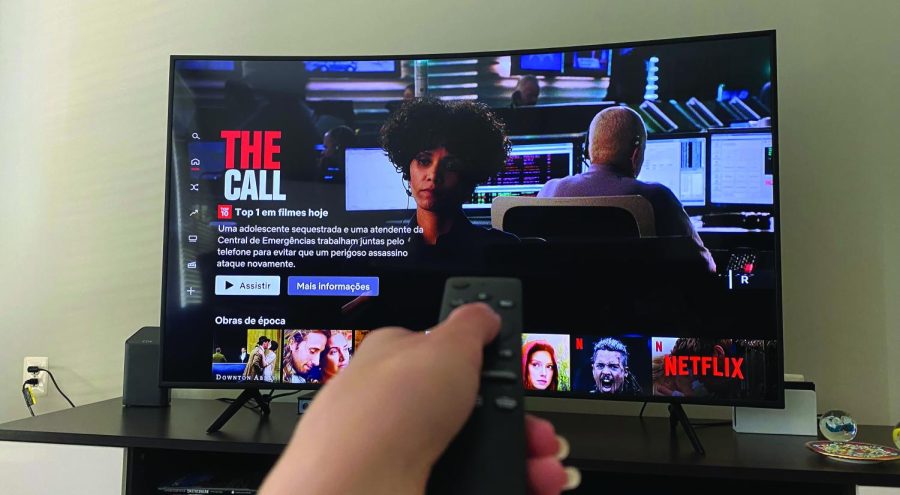Hollywood has been dominated by entertainment behemoths for decades, but rapidly-growing Netflix is beginning to steal some limelight. Its deep pockets allow it to hire prominent actors and churn out massive quantities of shows, and popularity among Generation Z is an indicator that the company is likely to grow bigger.
Apart from the company’s own productions, Netflix offers traditional movies such as Karate Kid and Mean Girls, permitted by contractual agreements with the films’ owners. Making money from old and new films doesn’t come close to revenue for corporations like Disney, but the business model is successful.
“Netflix has almost a monopoly on accessibility,” said English teacher Elise Emmons, who was a film minor for a short period of time. “At first, it was bringing us shows that aren’t really seen on daytime TV or in theaters. However, now that there [are] actual Netflix movies being produced to a higher standard that [are] included in the Oscars and Golden Globes, they’re [dominating] the space because they were the first [streaming platform] to do it.”
Many film specialists, especially those who are influential in the cinema industry, have hesitated to accept Netflix films and shows. A large swath of their productions don’t take prestigious awards home, and many scenes are criticized online for their cheesy lines and low budgets. Skeptical societies have sent letters to festivals and ceremonies against the inclusion of Netflix originals as runner-ups, such as the International Confederation of Art Cinema’s open letter to the Berlin Film Festival opposing the Netflix movie Elisa & Marcela as a runner-up in 2019.
“[Netflix] is good at creating shows that are bingeable, [but] not necessarily critically acclaimed shows, so they have to prove themselves,” Emmons said. “Now we have been realizing in the past few years that they’re able [to produce quality films especially due to] the stars that they get and their production power.”
Some production companies have modeled Netflix and created their own streaming platforms. While many, like Paramount+, have seen dismal subscription growth, Disney+ has been largely successful. Companies hope that users, especially teens who are accustomed to watching Netflix, would rather watch at home rather than in movie theaters. Cutting out theaters as a middleman is advantageous for content producers, but viewers haven’t given up on the big screens yet.
“The movies coming out that teens are excited about are done by streaming companies, [and those at the cinema] target [more] adults or people who enjoy going to the theater,” junior and Film Club president Dalia Fishman said.
Netflix has also championed diversity in its productions, a departure from long standing companies reluctant to include minority voices in major productions. The platform has a unique knack at converting non-American shows into international sensations, like 2021’s Squid Game.
“[By] funding all different kinds of projects to get diverse audiences, Netflix is raising the game and pioneering diversity,” Fishman said. “They’re always willing to work with different kinds of people and promote different [movie genres] that might’ve not been seen if it had been done by a blockbuster.”
A revolution in the movie industry may be on its way, even if it takes a while. Although corporations like Disney are unlikely to phase out anytime soon, Netflix seems to be up for the challenge of developing a new niche in Hollywood. There is no doubt streaming platforms are making their way in baby steps, but whether they will be able to stay or even overcome tradition is still unclear.
“Netflix is certainly formidable to other production companies [and] has the power to make a wrecker movie, [so] they shouldn’t be taken lightly,” Fishman said.








